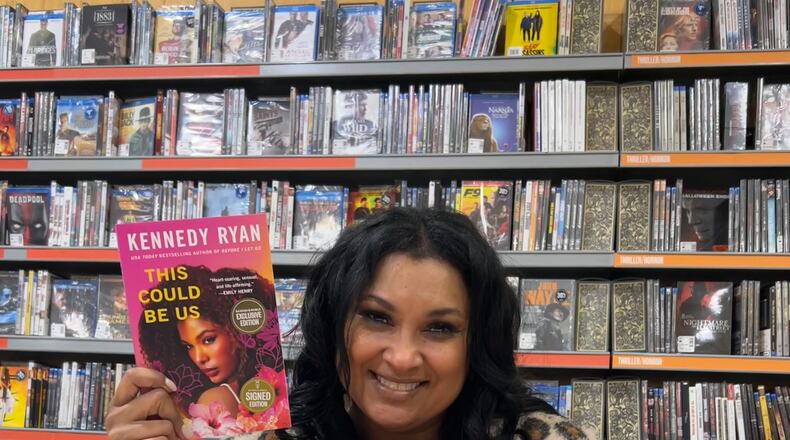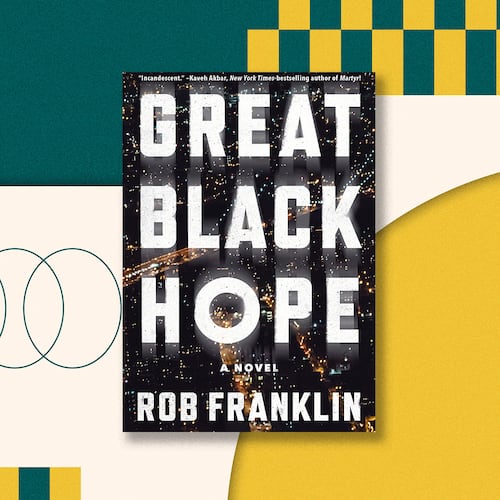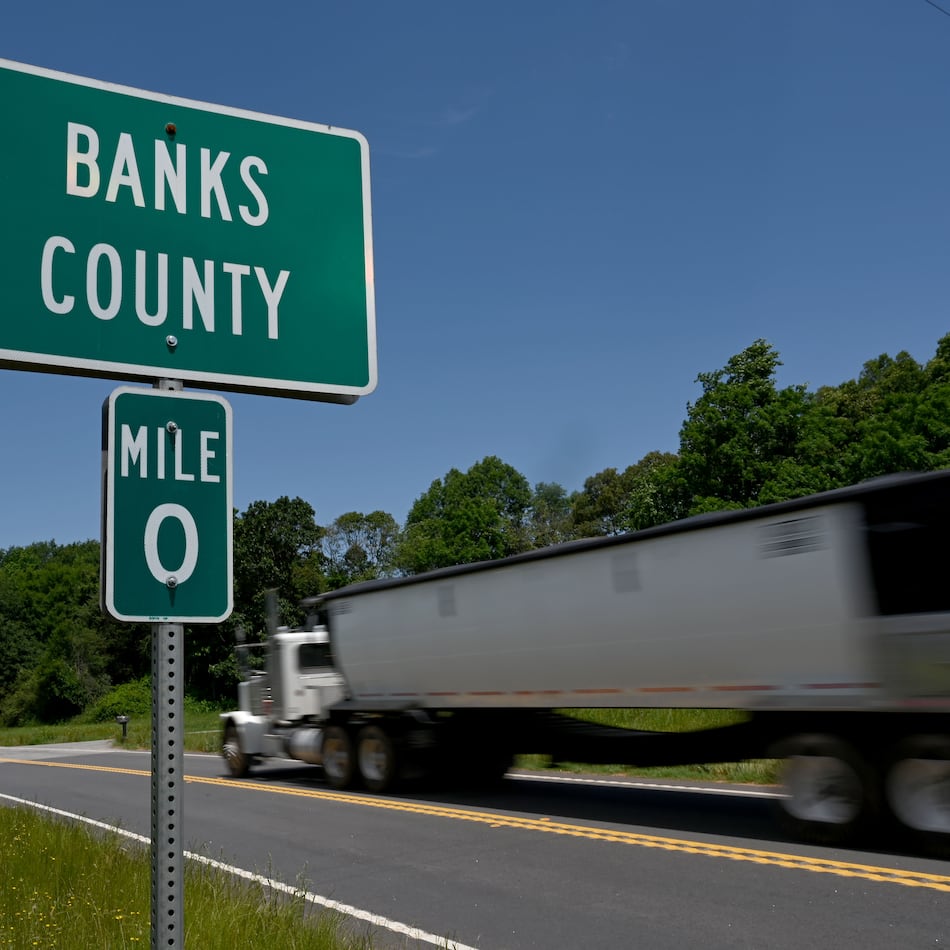A loud cheer erupted in the hallway of the JW Marriott in Buckhead where hundreds of women lined up for entry into the Phoenix Ballroom.
I couldn’t see through the throngs of people, but I would later learn that the high-pitched screams, the kind which are generally reserved for musicians or movie stars, were instead offered to a writer of women’s fiction.
Kennedy Ryan had arrived at the inaugural Black Romance Book Fest, and as she made her way to the stage for a keynote address, her fans were intent on showering her with love and appreciation.
Event organizer Lauren Lacey said more than 1,400 readers of Black romance novels had registered for the event, and 120 authors, including some of the most well-known writers in the genre — Beverly Jenkins, Tia Williams, Jasmine Guillory — had agreed to participate.
Credit: Nedra Rhone
Credit: Nedra Rhone
Black romance novels had their earliest beginnings in the 1980s and boomed in the mid-1990s, but as of 2024, only 11% of romance authors at traditional publishing houses were identified as Black, Indigenous or people of color, according to data from the Ripped Bodice, a romance bookstore in New York.
“Our goal is to amplify Black voices and celebrate the amazing authors, creators, readers and illustrators within the literary community,” said Lacey, noting that support for the event was unprecedented. “From social media to selling out in 30 minutes, it’s truly been surreal,” she said.
I thought I was going to a book conference, but what I got was a crash course in all the ways that Black romance novels are transforming the lives and minds of readers, especially during challenging social and political times.
The stories in Black romance novels embody a deep sense of hope, and the women in attendance seemed to recognize that reading about joy on the page could manifest joy in real life.
“I have just gotten into romance in the past two or three years and once I discovered Black romance, I was like, this is such a special thing to read and eventually live, because we all want romance,” said Arionne Yancy, who was visiting from Cleveland, Ohio, with her friend Janelle McDonald.
The pathos in Black romance novels allows readers to see themselves as fully human and offers both a challenge to and an escape from a world that too often deals in stereotypes of Black women, leaving them on the wrong side of popular culture.
“Romance is known as the literature of hope for all readers, but for Black readers navigating a world that discounts the value of Black life, and denies the existence of Black humanity, Black beauty and Black people’s capacity for love, the idea of romance as hope has additional weight. That’s especially true in times of elevated external stress and obvious strife,” writes Carole V. Bell in “Black Love Matters: Real Talk On Romance, Being Seen and Happy Ever Afters.”
Complexity of characters is the key to a good romance story, Yancy said, and it helps when the characters are relatable. In Black romance novels, Black hairstyles are celebrated, Black skin tones are lauded, slang does not come with definitions, and cultural mores require no cumbersome explanations.
McDonald came to the book fest specifically to see Jasmine Guillory, an author she appreciates for her ability to intertwine characters throughout books and place Black protagonists in unique situations.
“I enjoy that she has no fear of stepping outside the lines of what their language looks like, what their history looks like,” McDonald said. “Being able to have Black women specifically write about Black love and how it doesn’t always have to be a struggle … I think that is what people are looking for now.”
Credit: Nedra Rhone
Credit: Nedra Rhone
For fans of Black Romance, living happily ever after (or HEA in romance-speak) isn’t just about falling in love; it is also about falling into a world where they are allowed to exist beyond the constraints of race. Black communities, Black institutions, and a shared cultural experience are as important to these stories as richly developed Black protagonists.
Readers say these elements create safe spaces for them to explore their own desires.
Ryan, during the keynote session, made clear that when she is writing about the Black experience in her novels, she won’t write trauma-informed fiction without also writing trauma-responsive fiction. “(Romance) is the only genre that guarantees joy at the end,” Ryan said; “I am never going to write pain without healing.”
As a relative newbie to the growing canon of Black romance novels, terms like “Insta love,” “fake marriage,” and “closed door vs. open door romance” were a new language for me. When a fellow reader asked me for my BookTok handle, I hesitantly told her I didn’t have one.
But I am a book lover, a romantic, and a woman who wants to read more books about women like me leading a joyful existence. So, I jotted the names of authors and titles in my notebook.
That afternoon, while at a neighborhood festival, I met Viola Lanier, the owner of a Marietta bookstore whose mission is to encourage people to read books that inspire well-being.
I considered it kismet that her display featured four of the books I had written in my notebook. I plan to read them all this summer, and like the protagonists in those stories and the women who write them, bring a little more main-character energy to my own life.
Read more on the Real Life blog (www.ajc.com/opinion/real-life-blog/) and find Nedra on Facebook (www.facebook.com/AJCRealLifeColumn) and X (@nrhoneajc) or email her at nedra.rhone@ajc.com.
About the Author
Keep Reading
The Latest
Featured






